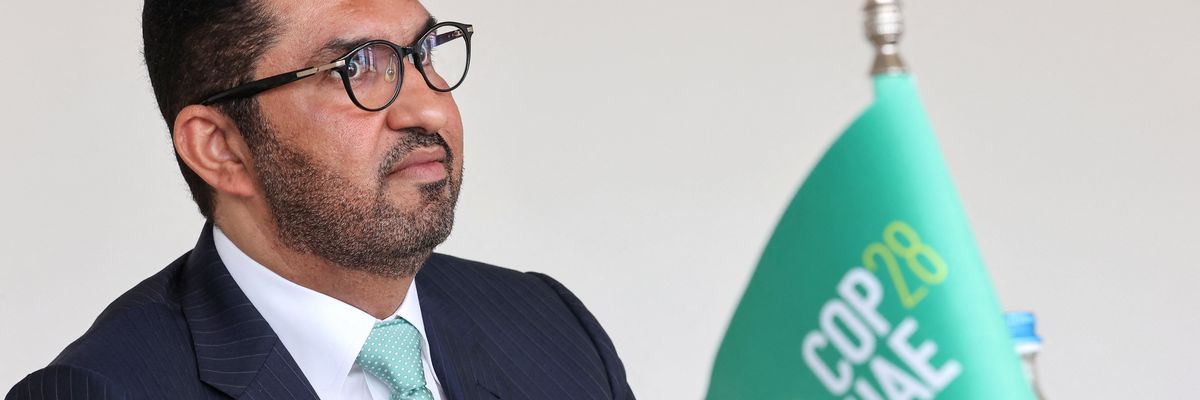With just two weeks until the next United Nations climate summit, Amnesty International on Wednesday expressed concerns about authorities in the United Arab Emirates using digital surveillance to target COP28 attendees and UAE residents alike.
"It is no secret that targeted digital surveillance has long been weaponized in the United Arab Emirates to crush dissent and stifle freedom of expression," said Rebecca White, a campaigner with Amnesty's Disrupting Surveillance Team, in a statement.
"Prior to his arrest in 2017, human rights defender Ahmed Mansoor faced a string of cyberattacks facilitated by mercenary surveillance companies," she noted. "Known as 'the last human rights defender' in the UAE, Mansoor, who openly criticized the authorities, has been languishing in an Emirati prison for over six years."
In recent months, Amnesty and other groups have called on U.S. Secretary of State Antony Blinken to pressure the UAE to "immediately and unconditionally release" Mansoor and other imprisoned human rights advocates before COP28. Amnesty has also joined other organizations in urging leaders of countries participating in the summit to address the host nation's human rights record and "destructive" climate policies amid a worsening global emergency.
"Amnesty International fears that human rights defenders and other members of civil society in the UAE may continue to be targeted with spyware, including those attending COP28," White said Wednesday. "As hosts of the conference, the UAE has pledged to offer a platform for activists' voices, yet this will not be possible unless human rights, including the rights to privacy and peaceful assembly, are respected."
The pledge she referenced was signed in August by the United Nations Framework Convention on Climate Change (UNFCCC) Executive Secretary Simon Stiell and the COP28 president-designate, Sultan bin Ahmed Al Jaber, who is also an oil executive.
Heba Morayef, Amnesty's regional director for the Middle East and North Africa, said at the time, "The fact that the hosts of this crucial climate meeting felt the need to highlight that some form of free assembly and expression will be allowed during COP28 serves only to highlight the normally restrictive human rights environment in the United Arab Emirates and the severe limits it places on the rights to freedom of expression and peaceful assembly."
White stressed Wednesday that "the UAE authorities must not engage in unlawful electronic surveillance of conference participants as well as all Emirati nationals and residents. They must also allow COP28 attendees to download privacy-respecting international communications applications like Signal in the UAE to ensure they can use safe, encrypted means of communication."

